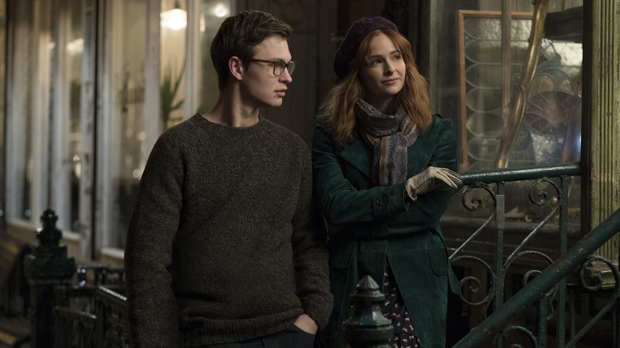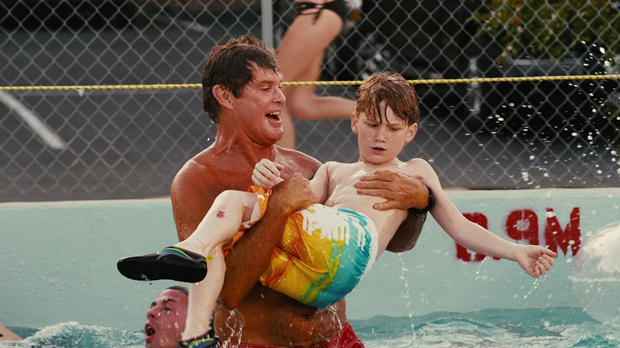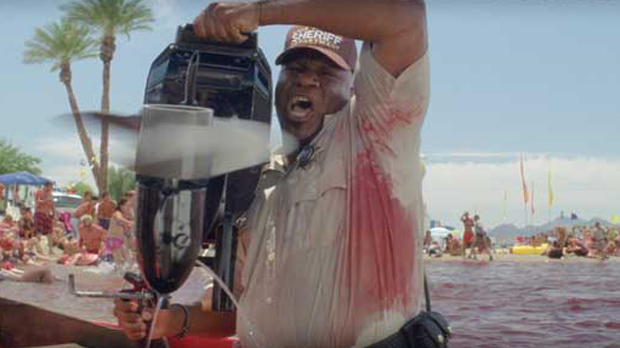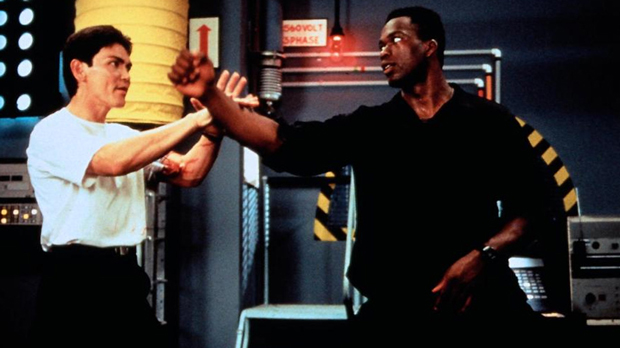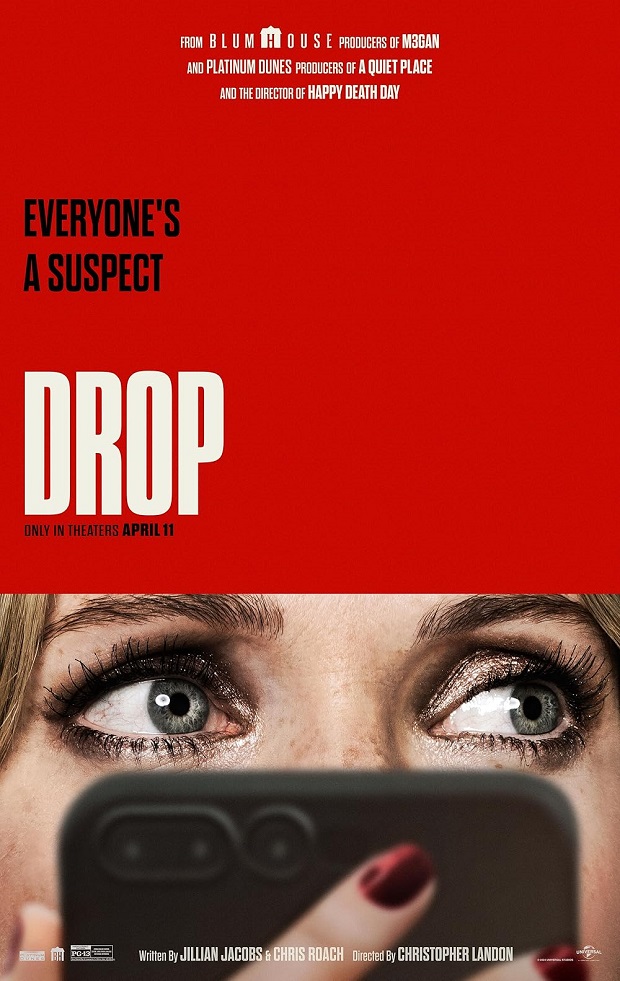 The Goldfinch (2019) Warner Bros./Drama RT: 149 minutes Rated R (drug use and language) Director: John Crowley Screenplay: Peter Straughan Music: Trevor Gureckis Cinematography: Roger Deakins Release date: September 13, 2019 (US) Cast: Ansel Elgort, Oakes Fegley, Nicole Kidman, Aneurin Barnard, Finn Wolfhard, Luke Wilson, Sarah Paulson, Jeffrey Wright, Ashleigh Cummings. Aimee Laurence, Willa Fitzgerald, Denis O’Hare, Boyd Gaines, Peter Jacobson, Luke Kleintank, Jack DiFalco, Robert Joy, Ryan Foust, Hailey Wist. Box Office: $5.3M (US)/$9.4M (World)
The Goldfinch (2019) Warner Bros./Drama RT: 149 minutes Rated R (drug use and language) Director: John Crowley Screenplay: Peter Straughan Music: Trevor Gureckis Cinematography: Roger Deakins Release date: September 13, 2019 (US) Cast: Ansel Elgort, Oakes Fegley, Nicole Kidman, Aneurin Barnard, Finn Wolfhard, Luke Wilson, Sarah Paulson, Jeffrey Wright, Ashleigh Cummings. Aimee Laurence, Willa Fitzgerald, Denis O’Hare, Boyd Gaines, Peter Jacobson, Luke Kleintank, Jack DiFalco, Robert Joy, Ryan Foust, Hailey Wist. Box Office: $5.3M (US)/$9.4M (World)
Rating: *
More like The Turkey if you ask me. The Goldfinch, an adaptation of Donna Tartt’s Pulitzer Prize-winning novel, isn’t the first time a popular book failed to make a successful transition to cinema. I’m sure we all remember the fiasco that was The Bonfire of the Vanities. At least it was unintentionally funny, a claim that cannot be made by this inert drama about how a life can be shaped (or reshaped) by seemingly random events. Directed by John Crowley (Brooklyn), he pares The Goldfinch down to its bare bones leaving little more than major plot points and a faint echo of the book’s deeper themes. Two-and-a-half hours of screen time barely affords the material the depth allowed by hundreds of pages of text.
The life in question belongs to Theo Decker (Fegley, Pete’s Dragon), a 13YO boy whose mother is killed in a terrorist bombing at an art museum (the Met in New York). That The Goldfinch is being released so close to 9/11 makes it feel a bit exploitative. ANYWAY, Theo’s post-tragedy life takes a dramatic turn into a downward spiral of grief and guilt. He blames himself for her death. If it wasn’t for him, they wouldn’t have been there that day at that time. In his alcoholic father’s absence from his life, he’s sent to live with the family of his school friend Andy (Foust) where he bonds with the mother Samantha (Kidman, To Die For) over his love of art. He finds a mentor in Hobie (Wright, Basquiat), an antiques shop owner who also lost a loved one in the bombing. It’s through him that Theo discovers a passion for antiques.
Just as he seems to have found happiness, Theo’s father Larry (Wilson, The Royal Tenenbaums) shows up claiming sobriety and a desire to be his father. This means uprooting the boy yet again and taking him to live in Las Vegas with his bitchy, drug dealer girlfriend Xandra (Paulson, Glass). They live on a block lined by empty homes, the result of bank foreclosures. Between his dad’s gambling addiction and the girlfriend’s indifference, Theo is lonely. He makes friends with Boris (Wolfhard, It Chapter Two), a Goth teen originally from Ukraine. They become close until….. hang on a minute. Why am I getting so wrapped up in plot details here? Why don’t I just get right to the point? In the immediate aftermath of the bombing, Theo steals a valuable painting, “The Goldfinch” by Carel Fabritius. He keeps it with him all the time, wrapped in newspaper and hidden in spots where others might think to look. It’s obviously a metaphor for the guilt he carries with him everywhere.
All of the performances in The Goldfinch are stilted. Kidman is especially stiff as an upper-class wife and mother; she may as well be a spokesperson for Valium given the drugged state she appears to be in at all times. However, top dishonors go to Ansel Elgort as adult Theo, a drug-addicted antique salesman (he works for Hobie) engaged to marry Andy’s sister Kitsey (Fitzgerald, TV’s Scream). As much as I like Elgort in Baby Driver and The Fault in Our Stars, he’s really not that good an actor. He’s terrible in The Goldfinch. Not one of his line readings is even remotely believable although I suppose it makes sense in a movie where none of the characters behave in a manner that even vaguely resembles actual human beings. I couldn’t believe all the human artifice in this movie. The only one that comes off with even a small measure of dignity is Wright who acts as Theo’s conscience as it pertains to honesty in business and life.
In trying to come up with the most ridiculous plot development, I find that it’s near impossible to single out just one. I could say it’s Theo’s father trying to cheat him out of his inheritance to pay off his gambling debts, but who didn’t see that coming? Maybe it’s the oily client (O’Hare, Late Night) who tries to blackmail Theo. It goes absolutely nowhere. Maybe it’s how Theo meets up with Boris as an adult. Of all the Russian bars he could have gone to (to score pills), he goes to the very one where Boris hangs when he visits New York. Aha, I think I got it! The dumbest development (actually two-fold) in The Goldfinch is (1) how it ends up in the hands of drug dealers and (2) how Theo goes about getting it back. This is the stuff of an action movie not the serious story The Goldfinch purports to be.
In the end, The Goldfinch is boring, overlong, pretentious and idiotic. Perhaps the nicest thing I can say about it is that it looks good thanks to Roger Deakins’ cinematography. He brings out the beauty in all his locations especially Vegas. It’s not the Vegas we usually see with all the glitz and glamour of the casinos and neon-lit night life. It’s the deserted part where few people live. This, of course, is only a small part of a much larger picture that stinks. Much of the problem lies with Peter Straughan’s screenplay which is really more of an outline of the book. He touches on the salient points without connecting the dots. A few plot elements, like Theo’s unrequited love for fellow bombing survivor Pippa (Cummings, Tomorrow, When the War Began), don’t go anywhere. It’s a bad adaptation. It makes me want to read the book if only to understand why it doesn’t work as a film. For me, the take-away is that all that’s gold doesn’t glitter.
